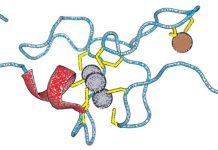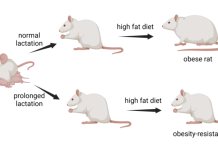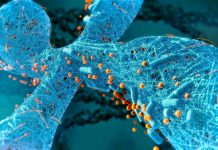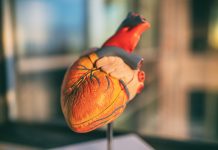Open Access Government produces compelling and informative news, publications, eBooks, and academic research articles for the public and private sector looking at health, diseases & conditions, workplace, research & innovation, digital transformation, government policy, environment, agriculture, energy, transport and more.
Home 2025
Archives
Consideration of key issues in positioning early intervention for eating disorders
Tracey Wade from the Flinders University Institute for Mental Health and Wellbeing outlines several key issues to consider in developing successful early intervention approaches for people with disordered eating and who are at risk of developing an eating disorder.
The neuroscience of metabolism
Given that the brain can detect and respond to changing levels of body fat and blood sugar, Michael W. Schwartz, MD from the University of Washington Medicine Diabetes Institute, explains how the brain can be targeted to treat obesity and diabetes.
Protecting the human epigenome with nutritional epigenetics intervention programs
Dr Renee J. Dufault, Executive Director at the Food Ingredient and Health Research Institute, explains the significance of nutritional epigenetics in understanding the impact of nutrients and dietary chemicals on gene expression patterns, as well as their role in the development of conditions such as autism and ADHD.
Detoxification: The science behind social media claims of detox health benefits
Jessie R. Badley and Pamela J. Lein from the University of California, Davis, explain the science behind detoxification and the claims of detox health benefits in social media and the deception associated with it.
Prolonged lactation: Preventing obesity since infancy
Dr Vincent Prevot and Professors Markus Schwaninger and Ruben Nogueiras explain the significance of the perinatal maternal lifestyle, specifically prolonged lactation, in shielding offspring from chronic disease.
Meal replacements: An educational tool for weight reduction in patients with diabetes in rural...
Richard J Santen, Emeritus Professor of Medicine at the University of Virginia, discusses how meal replacements can aid successful weight loss for individuals with diabetes living in rural, underserved communities.
Insights on metabolic health and reproductive wellness with Dr. Carol Elias
In this exclusive interview, Dr. Carol Elias simplifies the complex link between metabolism and reproduction, sharing insights into the science behind our physiological balance.
The Mediterranean Diet (MedDiet): There’s more to it than olives and grape leaves
Centered around the consumption of whole and unprocessed foods, we hear how following a Mediterranean diet can bring long-term health benefits, including mitigating the risk of common diseases.
The mechanisms and benefits of exercise
At Wayne State University, Robert Wessells and his team are making significant strides in identifying potential exercise mediators or mimetics that could help mitigate pathologies resulting from prolonged sedentary periods.
Nutritional management of chronic kidney disease in pets
Renea Creech and Kim Wilson outline the challenges of Chronic Kidney Disease in pets, the irreversible loss of kidney function, and how nutrition can help.
EAT2beNICE Project: The correlation between diet and mental health
Jeanette C. Mostert & Alejandro Arias Vasquez from the Departments of Genetics and Psychiatry, Radboud University Medical Center Nijmegen, The Netherlands, reveal that diet and mental health are linked, as they reflect on the lessons learned from the Eat2beNICE project.
Personalized diet intervention in Thai ageing populations
Professor Apichart Vanavichit a Rice Genomic Breeding Expert at the Rice Science Center looks at diet intervention and therapy for the ageing population of Thailand to prevent disease.
All fibers are not created equal: The microbiome, postbiotics, and pet health
The gastrointestinal microbiome comprises trillions of bacteria, and is a vitally important organ with wide ranging effects on pet health.
The haplogroup gap: The ticking time bomb of cardiometabolic disease in developing nations
Cardiometabolic disease (CMD) refers to a cluster of inter-related factors, including obesity, high blood pressure, high blood sugar, and elevated cholesterol (1).
Can dietary interventions help treat children with ADHD?
Lessa Schippers & Jeanette Mostert, departments of Genetics and Psychiatry, Radboudumc Nijmegen, The Netherlands, explore how dietary interventions may have added value to current treatment and reduce medication use for children with ADHD.
















